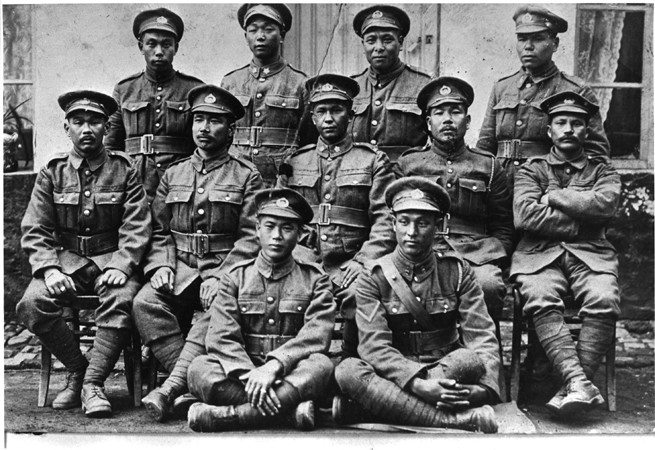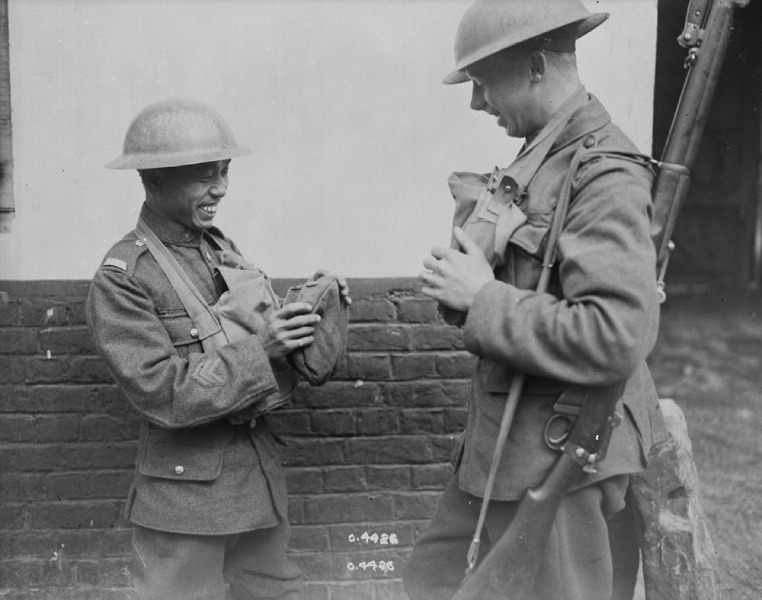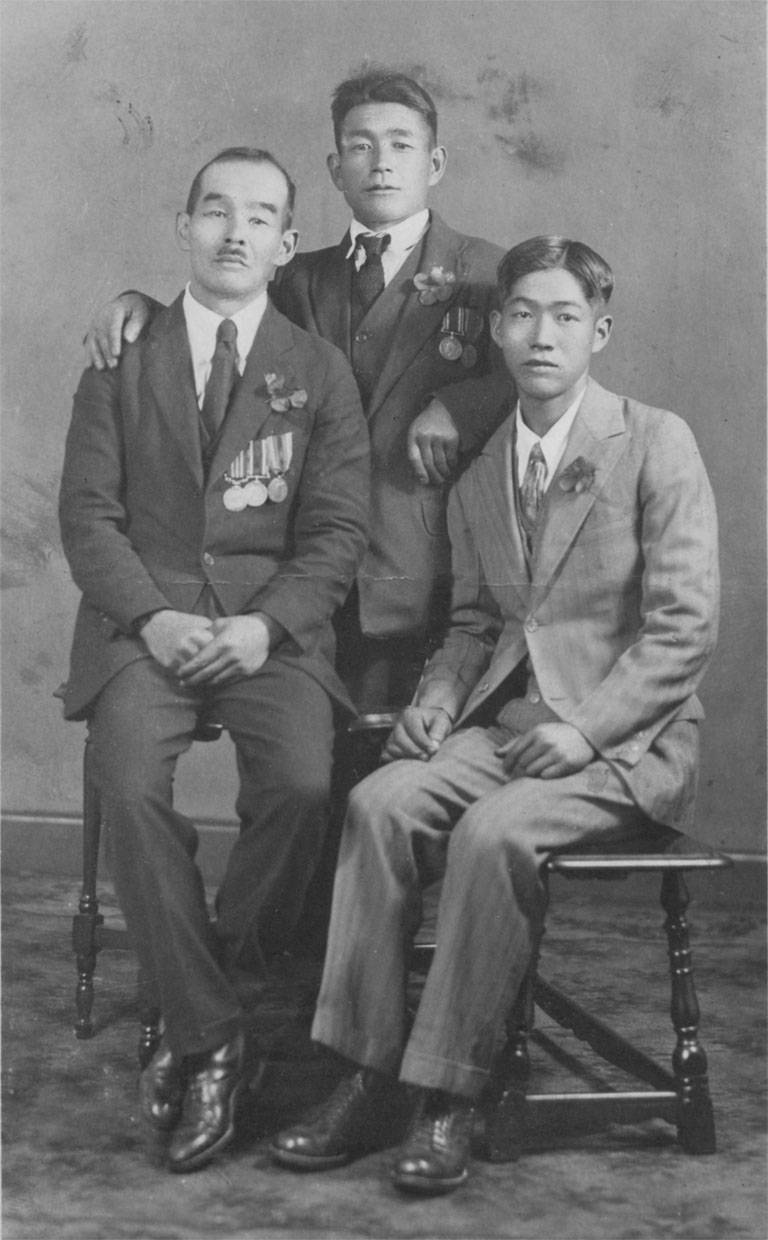Japanese Canadian Soldiers of the First World War and the Fight to Win the Vote National Historic Event

© Nikkei National Museum & Cultural Centre / 2010.23.2.4 551
Japanese Canadian soldiers of the First World War and the fight to win the vote was designated as a national historic site in 2011.
Historical importance: 222 Japanese Canadian soldiers overcame barriers to enlistment and prejudice and fought for Canada on the Western Front between 1916 and 1918.
Commemorative plaque: Vancouver, British ColumbiaFootnote 1
Japanese Canadian Soldiers of the First World War and the Fight to Win the Vote
During the Great War, more than 200 Japanese Canadian soldiers served our country. Although not recognized as equal citizens, they overcame obstacles to enlistment and fought on the Western Front between 1916 and 1918. A quarter of them died in battle. Building on their contribution to the war effort, the returning veterans fought to participate fully in Canadian society, and in 1931 they became the first group of Asian Canadians to attain the right to vote from the Province of British Columbia. Through their courage and resolve, these veterans expanded the concept of patriotism and advanced the development of citizenship rights in Canada.
Japanese Canadian Soldiers of the First World War and the Fight to Win the Vote
Resolutely determined to serve their country despite not being fully recognized as equal citizens, over 200 Japanese Canadian soldiers overcame prejudice and barriers to enlistment and fought for Canada on the Western Front between 1916 and 1918. Tragically, nearly one-fourth of them were killed in action and 92 were wounded.

© Canada Department of National Defence / Library and Archives Canada, 3401233
Building on their contribution to the war effort, the surviving Japanese Canadian veterans launched a concerted grass-roots campaign in 1920 to gain the franchise for this ethnic group which, by law, had previously been barred from voting in federal elections. As a result of their efforts, Japanese Canadian veterans became, in 1931, the first group of Asian Canadians to attain the provincial and federal franchise in British Columbia, then home to the majority of Asian Canadians and over 90 per cent of Japanese Canadians. This stands as an important milestone along the road to full political participation by all Asian Canadians by 1949.
Fighting not only for Canada but also for the right of their community to participate fully in Canadian society, the Japanese Canadian veterans of the First World War expanded traditional concepts of patriotism and national service and advanced the development of citizenship rights in Canada.

© Nikkei National Museum & Cultural Centre 2014.10.1.3
Within days of the declaration of war by Great Britain and her Empire against Germany in 1914, members of the Japanese-Canadian community volunteered in recruiting offices in British Columbia to fight in the western European theatre. Initially refused entry to the Canadian Army, the volunteers were subsequently organised into a battalion by the Canadian Japanese Association and professionally trained, but the Canadian government, catering to domestic feelings, refused to mobilise these troops. By joining units in other provinces, over 200 Japanese Canadians fought with distinction on the western front, where they overcame anti-Asian prejudice and earned the respect of their commanders and fellow soldiers while they battled the enemy.
Excluded by law from the right to vote, Japanese Canadians pointed to their war service as a practical reason why this marginalised ethnocultural community should be granted the vote after the end of hostilities. Throughout the 1920s, Japanese Canadian veterans argued that their war service proved their suitability for the right to vote. In 1931, the legislature of British Columbia agreed to enfranchise Japanese Canadian veterans and, within 18 years, all Asian-Canadians received the full rights of Canadian citizenship. These new voters and those who followed could look to the sacrifices of the Japanese Canadian soldiers during the First World War for the achievement of citizenship, while all Canadians should celebrate the achievement of equal rights by the Asian Canadian community.
Backgrounder last update: 2016-07-14
The National Program of Historical Commemoration relies on the participation of Canadians in the identification of places, events and persons of national historic significance. Any member of the public can nominate a topic for consideration by the Historic Sites and Monuments Board of Canada.
- Date modified :